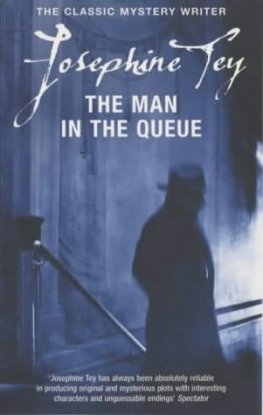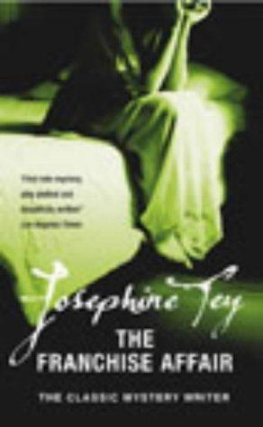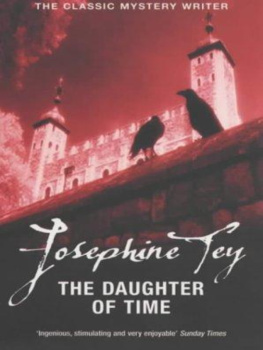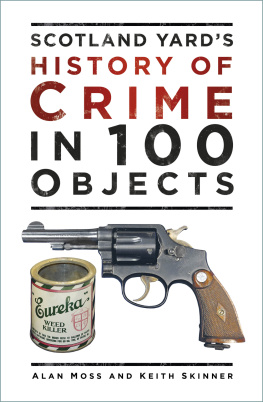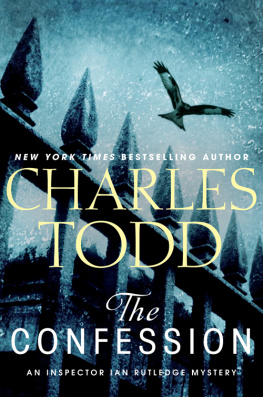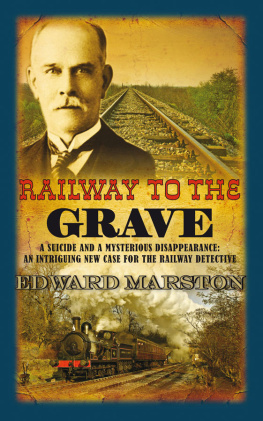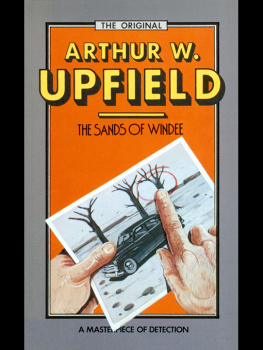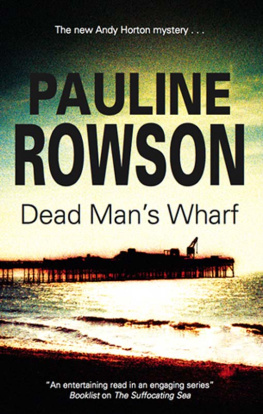Josephine Tey - The Singing Sands
Here you can read online Josephine Tey - The Singing Sands full text of the book (entire story) in english for free. Download pdf and epub, get meaning, cover and reviews about this ebook. year: 1996, publisher: Touchstone, genre: Detective and thriller. Description of the work, (preface) as well as reviews are available. Best literature library LitArk.com created for fans of good reading and offers a wide selection of genres:
Romance novel
Science fiction
Adventure
Detective
Science
History
Home and family
Prose
Art
Politics
Computer
Non-fiction
Religion
Business
Children
Humor
Choose a favorite category and find really read worthwhile books. Enjoy immersion in the world of imagination, feel the emotions of the characters or learn something new for yourself, make an fascinating discovery.

- Book:The Singing Sands
- Author:
- Publisher:Touchstone
- Genre:
- Year:1996
- Rating:3 / 5
- Favourites:Add to favourites
- Your mark:
- 60
- 1
- 2
- 3
- 4
- 5
The Singing Sands: summary, description and annotation
We offer to read an annotation, description, summary or preface (depends on what the author of the book "The Singing Sands" wrote himself). If you haven't found the necessary information about the book — write in the comments, we will try to find it.
The Singing Sands — read online for free the complete book (whole text) full work
Below is the text of the book, divided by pages. System saving the place of the last page read, allows you to conveniently read the book "The Singing Sands" online for free, without having to search again every time where you left off. Put a bookmark, and you can go to the page where you finished reading at any time.
Font size:
Interval:
Bookmark:
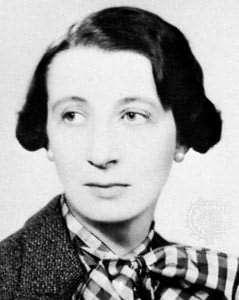 Josephine Tey was a pseudonym used by Elizabeth Mackintosh (25 July 189613 February 1952) a Scottish author best known for her mystery novels.
Josephine Tey was a pseudonym used by Elizabeth Mackintosh (25 July 189613 February 1952) a Scottish author best known for her mystery novels.
Mackintosh was born in Inverness, and attended a physical training college in Birmingham before becoming a teacher. Her literary career began when she was forced to give up regular work in order to care for her invalid father.
In five of the mystery novels she wrote under the name of Josephine Tey, the hero is Scotland Yard Inspector Alan Grant (he appears in a sixth, The Franchise Affair, as a minor character). The most famous of these is The Daughter of Time, in which Grant, laid up in hospital, has friends research reference books and contemporary documents so that he can puzzle out the mystery of whether King Richard III of England murdered his nephews, the Princes in the Tower. Grant comes to the firm conclusion that King Richard was totally innocent of the death of the Princes. (The novel has influenced later mystery writers, most notably Barbara Mertz, who writes under the name "Elizabeth Peters". Mertz refers explicitly to Tey in "The Murders of Richard the Third," which sets a country-house murder mystery among a group who believe that Richard III was innocent.)
The Franchise Affair also has a historical context: although set in the 1940s, it is based on the 18th-century case of Elizabeth Canning. The Daughter of Time was the last of her books published during her lifetime. A further crime novel, The Singing Sands, was found in her papers and published posthumously.
As Gordon Daviot she wrote about a dozen one-act plays and another dozen full-length plays, but only four of them were produced during her lifetime. Richard of Bordeaux was particularly successful, running for fourteen months and making a household name of its young leading man and director, John Gielgud. Proceeds from Tey's estate, including royalties from her books, were assigned to the National Trust.
Tey appears as a main character in An Expert In Murder (Faber 2008) by Nicola Upson, a detective story woven around the original production of Richard of Bordeaux. The second novel in the series, Angel with Two Faces, was published in 2009; further novels are planned. Tey is mentioned in the 1982 Stephen King novella, Apt Pupil.
Source: Wikipedia
by
FIRST PUBLISHED 1952
IT was six o'clock of a March morning, and still dark. The long train came sidling through the scattered lights of the yard, clicking gently over the points. Into the glow of the signal cabin and out again. Under the solitary emerald among the rubies on the signal bridge. On towards the empty grey waste of platform that waited under the arcs.
The London mail at the end of its journey.
Five hundred miles of track lay behind it in the darkness all the way to Euston and last night. Five hundred miles of moonlit fields and sleeping villages; of black towns and unsleeping furnaces; rain, fog, and frost; snow flurry and flood; tunnel and viaduct. Now, in the six o'clock bleakness of a March morning the hills had risen round it and it was coming, casual-seeming and quiet, to rest after its long urgency. And only one person in all its crowded length did not sigh with relief at the realisation.
Of those who sighed two at least sighed with a gladness that bordered on passion. One of these was a passenger, and the other was a railway employee. The passenger was Alan Grant; and the railway employee was Murdo Gallacher.
Murdo Gallacher was a sleeping-car attendant, and the best-hated living creature between Thurso and Torquay. For twenty years Murdo had browbeaten the travelling public into acquiescence and blackmailed them into tribute. Monetary tribute, that is. Their vocal tribute was voluntary. To first-class passengers far and wide he was known as Yughourt. (Oh God, it's Old Yughourt! they would say as his sour face became visible through the steamy gloom of Euston.) The third-class passengers called him a variety of things, both frank and descriptive. What his colleagues called him is nobody's business. Only three people had ever got the better of Murdo: a cowhand from Texas, a lance-corporal of the Queen's Own Cameron Highlanders, and an unknown little Cockney woman in the third-class who had threatened to beat him over his bald head with a lemonade bottle. Neither rank nor achievement impressed Murdo: he hated one and resented the other; but he was greatly afraid of physical pain.
For twenty years Murdo Gallacher had done the absolute minimum. He had been bored by the job before he had been a week at it, but he had found it a rich lode and he had stayed to mine it. If you got morning tea from Murdo the tea would be weak, the biscuit soft, the sugar dirty, the tray slopped, and the spoon missing; but when Murdo came to collect the tray the protests which you had been rehearsing died on your lips. Now and then an Admiral of the Fleet or something like that would venture an opinion that it was damned awful tea, but the ruck smiled and paid up. For twenty years they had paid up, weary and browbeaten and blackmailed. And Murdo had collected. He was now the owner of a villa at Dunoon, a string of fried-fish shops in Glasgow, and a very nice bank balance. He might have retired years ago but he could not bear the thought of losing his full pension; so he endured the boredom a little longer and evened things up by not bothering with early morning teas unless passengers suggested the thing themselves; and sometimes, if he was very sleepy, forgetting about the order anyway. He hailed the end of each journey with the relief of a man who is working out his sentence and has only a short time left.
Alan Grant, watching the lights of the yard float past beyond the steamed-up window and listening to that gentle sound of the wheels clicking over the points, was glad because the end of the journey was the end of a night's suffering. Grant had spent the night trying not to open the door into the corridor. Wide awake, he had lain on his expensive pallet and sweated by the hour. He had sweated not because the compartment was too hotthe air-conditioning worked to a marvelbut because (O Misery! O Shame! O Mortification!) the compartment represented A Small Enclosed Space. To the normal eye the compartment was just a neat little room with a bunk, a wash-basin, a mirror, luggage racks in assorted sizes, shelves that appeared or disappeared as bidden, a fine little drawer for one's hypothetical valuables, and a hook for one's presumably unhocked watch. But to the initiate, the sad and haunted initiate, it was A Small Enclosed Space.
Overwork, the doctor called it.
'Sit back and browse for a little,' the doctor had said, crossing one elegant Wimpole Street leg over the other and admiring the hang of it.
Grant could not imagine himself sitting back, and he considered browsing a loathsome word and a contemptible occupation. Browsing. A fattening-up for the table. A mindless satisfaction of animal desires. Browse, indeed! The very sound of the word was an offence. A snore.
'Have you any hobbies?' the doctor had asked, his admiring glance going on to his shoes.
'No,' Grant had said shortly.
'What do you do when you go on holiday?'
'I fish.'
'You fish?' said the psychologist, seduced from his Narcissian gazing. 'And you don't consider that a hobby?'
'Certainly not.'
'What is it, then, would you say?'
'Something between a sport and a religion.'
And at that Wimpole Street had smiled and had looked quite human; and assured him that his cure was only a matter of time. Time and relaxation.
Font size:
Interval:
Bookmark:
Similar books «The Singing Sands»
Look at similar books to The Singing Sands. We have selected literature similar in name and meaning in the hope of providing readers with more options to find new, interesting, not yet read works.
Discussion, reviews of the book The Singing Sands and just readers' own opinions. Leave your comments, write what you think about the work, its meaning or the main characters. Specify what exactly you liked and what you didn't like, and why you think so.

